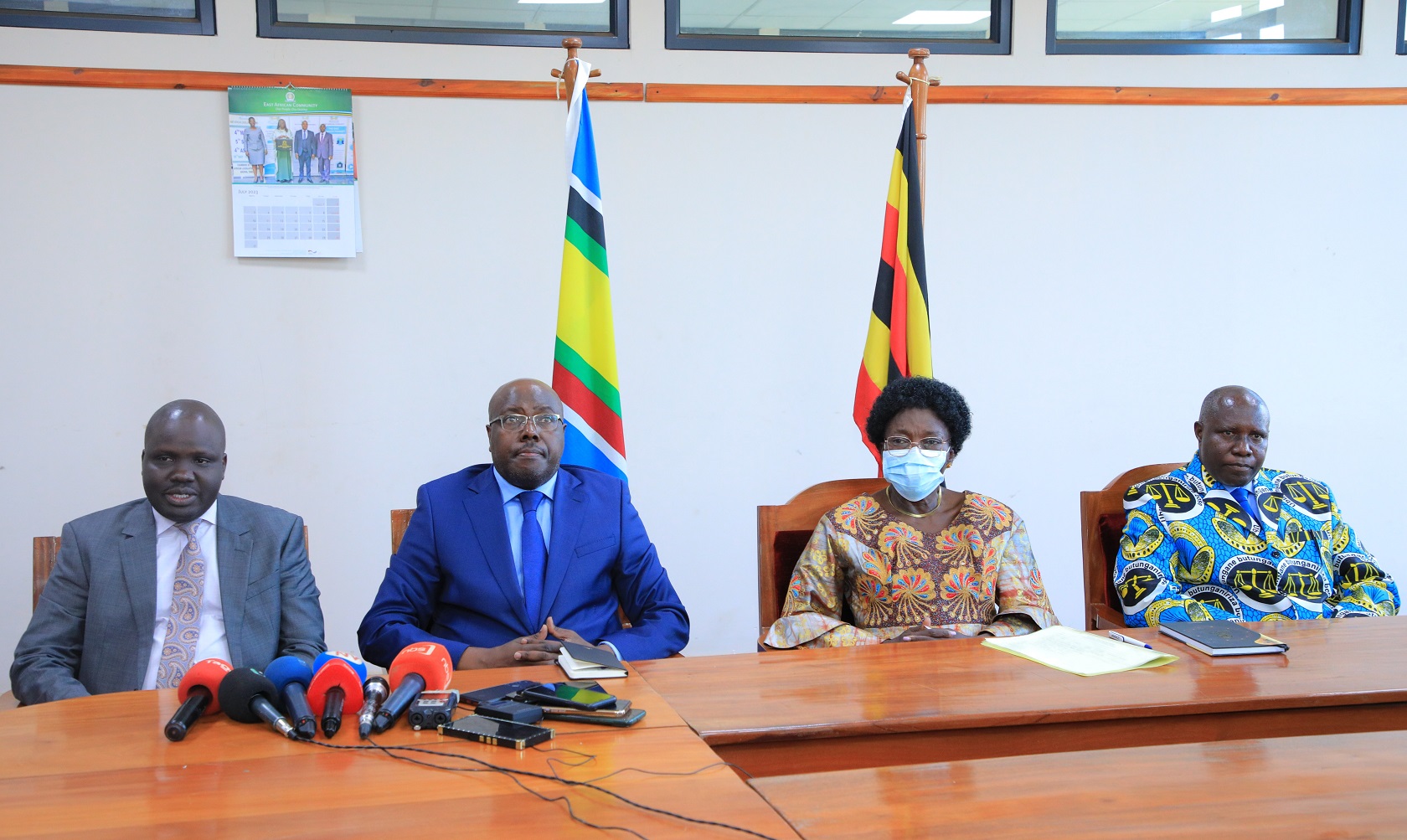
Ugandans urged to learn and speak Kiswahili
East African Community Headquarters, Arusha, Tanzania, 5th July, 2023: Ugandans have been called upon to learn and Kiswahili as part of efforts to promote regional integration and economic growth in East Africa.
Making the call, Uganda’s 1st Deputy Prime Minister and Minister for East African Community (EAC) Affairs, Hon. Rebecca Alitwala Kadaga, was a widely spoken language that could be utilised to unite not just East Africa but the entire African continent, adding that Ugandans should therefore embrace it as an African language.
Hon. Kadaga said that Kiswahili had earned a bad reputation partly because it was used in pre-colonial times by slave traders from the East African Coast.
Hon. Kadaga said that the Government of Uganda was currently working on a roadmap aimed at promoting the use of Kiswahili in the country even and added that the recruitment of Kiswahili teachers would be a key component in the roadmap.
The 1st Deputy Prime Minister disclosed that currently Kiswahili was still an optional subject but added that it would in future be made a compulsory and examinable subject beginning with primary schools.
The DPM said that plans were at an advanced stage to amend the EAC Treaty to operationalise the use of Kiswahili and French following the adoption of the two languages as official languages of the Community by the 21st Ordinary Meeting of the Summit of EAC Heads of State in February 2021.
Hon. Kadaga was speaking during a media briefing on the upcoming 2nd EAC World Kiswahili Day celebrations to be held in Kampala, Uganda from 5th – 7th July, 2023. She said that it was a great honour for East Africa as the home of Kiswahili to have it as the first indigenous African language to be recognised by UNESCO.
The DPM further said that 7th July, which is World Kiswahili Day, is of significance to the EAC in that it was the day that the Treaty for the Establishment of the EAC came into force. The Treaty was signed by their Excellencies President Daniel arap Moi (Kenya), President William Benjamin Mkapa (Tanzania) and President Yoweri Kaguta Museveni (Uganda) on 30th November, 1999. It came into force on 7th July, 2000.
Hon. Kadaga further disclosed that the East African Legislative Assembly further passed a resolution in 2016 to have Kiswahili adopted as an official language of the Community.
Addressing the press conference, the EAC Deputy Secretary General in charge of the Infrastructure, Productive, Social and Political Sectors,, Hon. Andrea Aguer Ariik Malueth, who represented EAC Secretary General Hon. (Dr.) Peter Mathuki, described Kiswahili as a language that carries African culture.
“Kiswahili as language enables us to express ourselves, showcase our culture to the rest of the world, carries our aspirations and projects our beauty as Africans,” said Hon. Malueth.

In her remarks, the Executive Secretary of the East African Kiswahili Commission (EAKC), Dr. Caroline Asiimwe, said that the EAC Treaty recognises Kiswahili as the lingua franca for the region, adding that the status of Kiswahili has since been elevated after it was adopted by the Summit as one of the official languages of the Community in addition to English and French.
Dr. Asiimwe urged Ugandans to change their negative attitudes towards Kiswahili, adding that mastery of the language would open up immense opportunities in trade, media, criminal justice system and healthcare, among other sectors.
“The negative perceptions and attitudes towards Kiswahili are misplaced. The negative attitude is carried by personalities, not the language,” said Dr. Asiimwe.
The Executive Secretary said that the EAKC would work with Partner States governments and the media to sensitise East Africans on the importance of learning and speaking Kiswahili.
On his part, the Judge President of the East African Court of Justice, Justice Nestor Kayobera, urged officials of Partner States’ governments and EAC Institutions to always ensure that they always comply with the provisions of the EAC Treaty while executing their duties.
Justice Kayobera said that abiding by the Treaty would prevent unnecessary court cases before the EACJ, adding that the Community has spent lots of money in compensating aggrieved parties for violation of the Treaty.
Speaking at the same event, East African Legislative Assembly Speaker, Rt. Hon. Joseph Ntakirutimana, expressed hope that Kiswahili would in years to come be spoken on all the continents becoming a world language in the process.
“In 1,000 years to come, Kiswahili will be spoken in Japan, Europe, America and other parts of the world. This will be a great recognition for East Africa,” said Rt. Hon. Ntakirutimana.
The highlight of the event will be the celebrations of the 2nd EAC World Kiswahili Day on Friday, 7th July, 2023 at the Hotel Africana in Kampala.
For more information, please contact:
Simon Peter Owaka
Senior Public Relations OfficerCorporate Communications and Public Affairs DepartmentEAC SecretariatArusha, TanzaniaTel: +255 768 552087Email: This email address is being protected from spambots. You need JavaScript enabled to view it.
About the East African Community Secretariat:
The East African Community (EAC) is a regional intergovernmental organisation of seven Partner States, comprising the Republic of Burundi, the Democratic Republic of Congo, the Republic of Kenya, the Republic of Rwanda, the Republic of South Sudan, the Republic of Uganda and the United Republic of Tanzania, with its headquarters in Arusha, Tanzania.
The EAC Secretariat is ISO 9001: 2015 Certified
